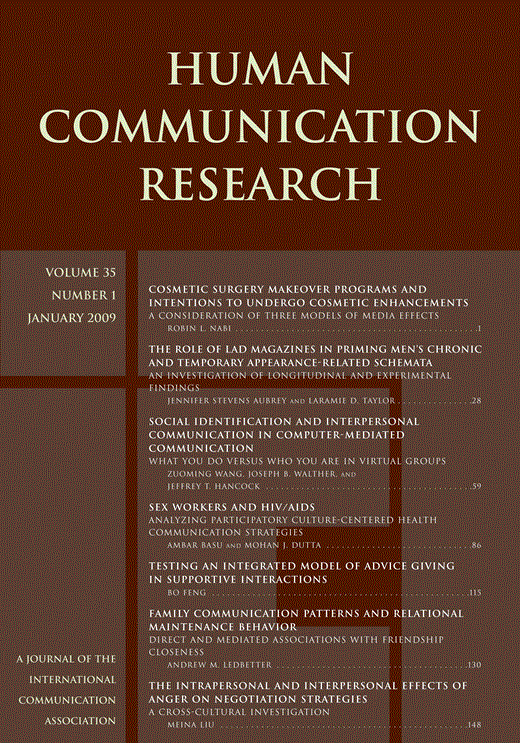-
Views
-
Cite
Cite
Bo Feng, Testing an Integrated Model of Advice Giving in Supportive Interactions, Human Communication Research, Volume 35, Issue 1, 1 January 2009, Pages 115–129, https://doi.org/10.1111/j.1468-2958.2008.01340.x
Close - Share Icon Share
Abstract
Viewing supportive communication as a multistage process, the present study proposed and tested an integrated model of advice giving, which specifies three sequential moves in supportive interactions involving advice: emotional support, problem inquiry and analysis, and advice. Seven hundred and fifty-two participants read and responded to a hypothetical scenario in which they received advice from a friend. Results of the study showed that advice that was offered following the moves of emotional support and problem inquiry and analysis was judged to be higher in quality than advice that did not follow this sequential pattern.





